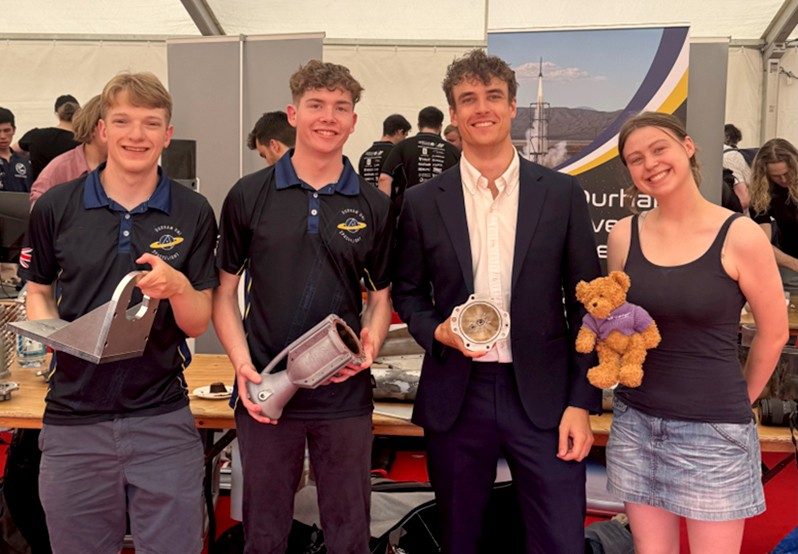Developing Future Rocket Engineers: Mentoring Durham for UK Race to Space
Ryan, Systems Engineer at Lockheed Martin, shares his exciting journey of mentorship – supporting a talented team of young innovators at Durham University in the Race to Space competition.
Igniting Innovation
As an aerospace professional who’s grown through the early careers route, it’s really important to me that I’m able to help future talent realise the opportunities and careers that STEM can lead to. Working for Lockheed Martin has given me opportunities to do just this, as the corporation is committed to inspiring the industry’s future talent pipeline.
This year, I've had the privilege of mentoring Durham University’s Spaceflight team in their ambitious endeavour to design and build a liquid rocket engine, to power their high altitude, full stack rocket. The Race2Space competition is an educational and national propulsion initiative, sponsored by Lockheed Martin, to support the growth of the UK space sector. Participating in this competition has been an inspiring journey, combining innovation, hands-on experience, and education.
My role as mentor has been both fulfilling and educational. Over the past year, I've been working closely with the team's Propulsion Lead, and Aerostructures Engineers – together, we've navigated the intricate design process, discussing various injector designs, and the aerodynamic stability of their high-altitude, full-stack rocket.
From Blueprint to Blast-off
The final engine was a pressure fed, liquid bipropellant (Isopropyl Alcohol & Nitrous Oxide), regeneratively cooled cycle. It was 3d printed from Aluminium Alloy AlSi10Mg, and features an impinging triplet injector design.
The engine was tested at Race to Space 2025, reaching a peak thrust of 5.7kN and peak specific impulse of 194s. The team achieved an impressive Cstar injector efficiency of 93% during steady state combustion. Towards the end of the burn the injector partially melted resulting in a rapid increase in oxidiser flow rate, altering the combustion from lean to oxidiser rich and a corresponding increase in combustion pressure & temperature.
Despite the setback, the team have shown resilience and a keen desire to learn from their experiences. The recent symposium echoed their determination, with team members expressing heightened motivation to refine and improve their engine. I am confident that next year's iteration will be even more advanced, perhaps featuring an injector less susceptible to temperature-induced phase transitions.
Fuelling the Future
The competition culminated with a symposium at the Wescott Innovation Centre, over 300 people from both industry and academia gathered to discuss the future of the UK Space Sector and watch the student teams present on their rocket engines. NASA Astronaut Danial Tani gave an inspirational talk on his time aboard the ISS and the exciting future of rocketry. This year, over 40 days of testing, the student teams achieved a total of 60 hot fires and 700kNs of total impulse.
This experience has been a testament to the power of mentorship and hands-on learning. I am immensely proud of the Durham team's accomplishments in such a short span and look forward to seeing their continued growth and success in the realm of aerospace engineering. Knowing that I have played a role in encouraging, inspiring, and mentoring the team is incredibly rewarding.
And it doesn’t stop here. In true spirit of reciprocation, the group themselves are now mentoring aspiring engineers aged 11-18, fostering a robust and talented pipeline of future engineers for the UK Rocket Sector.
You can find out more about Lockheed Martin’s STEM Outreach programme here.





